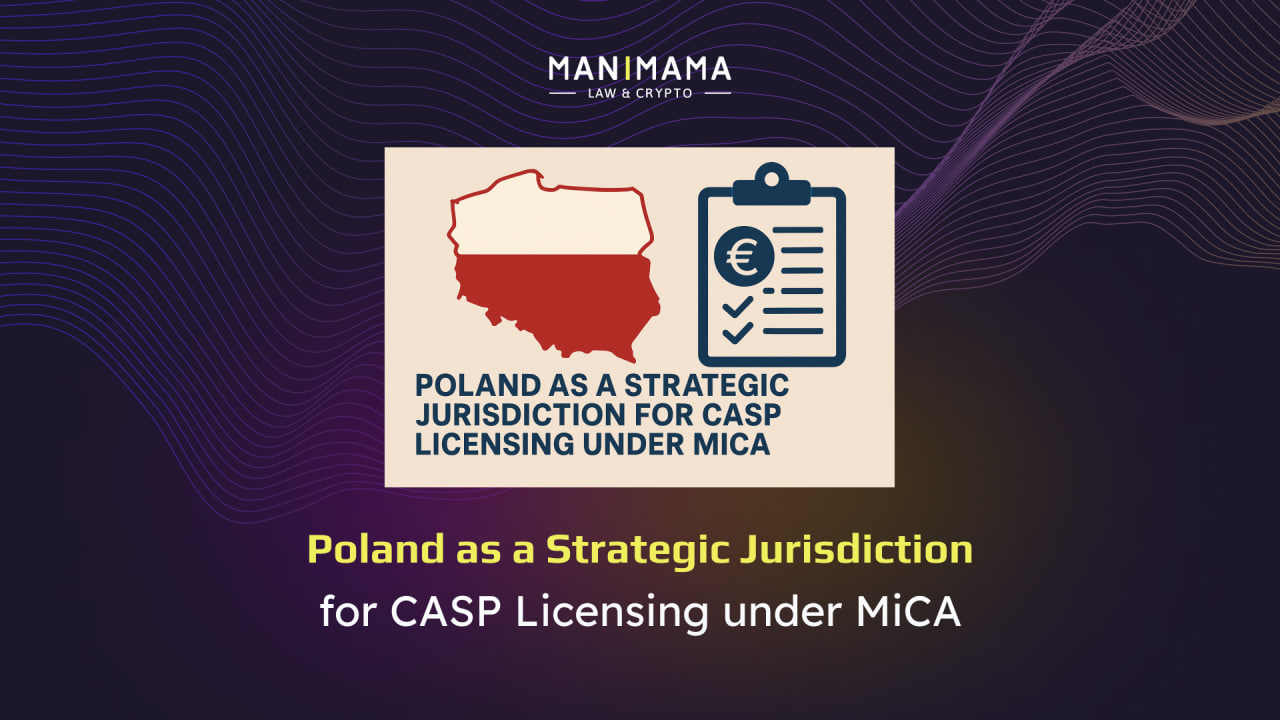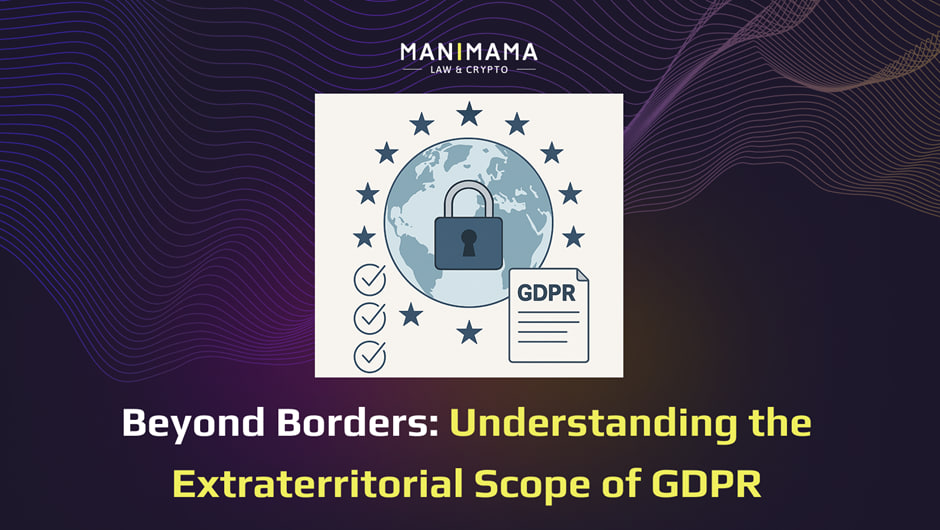Are cryptocurrency companies free to serve US residents?
The US market attracts most entrepreneurs wishing to start a new business or scale an existing one, due to many factors: the huge amount of free money in the economy, the purchasing power of the inhabitants, the positive reputation of the jurisdiction as a global financial center, etc.
All this also applies to the cryptocurrency sector – it is easy for prospective crypto startups to get loans or any kind of investments.
However, as usual, there are “buts” everywhere. The US has a general rule: “If any company wants to provide any kind of financial services to US citizens (individuals and legal entities) or in the US territory, it must obtain the appropriate license/authorization“. Failure to comply with the rule, for example in the case of providing cryptocurrency services, is punishable by criminal liability (imprisonment of up to 5 years) and a significant fine under Article 18 of the U.S. Code.
By cryptocurrency services in this article we mean the provision of the following services: buying cryptocurrencies, selling cryptocurrencies, crypto-crypto exchange, custodial services (crypto storage), and cryptocurrency transfer. Providing these services to US citizens online, physically in the US, or outside the US requires a special license.
That is why all cryptocurrency companies, that do not have such licences in the USA, specify in their policies (external documents) that they do not accept and do not provide services to US citizens and residents, as is for example stated in the Terms of use of Lithuanian crypto provider Manimama Exchange, or, as is often the case recently, a new project that launches an ICO or distributes its tokens to the community does not allow US citizens to participate in the distribution, for example, as in the last known token distribution from the SUI project according to their Token Community Access Programme : “US citizens are not allowed to own SUI tokens”.
Why are we being scared of the US cryptocurrency market?
We have already clarified the need for licensing to work with US residents, but then why don’t all these projects and crypto providers get a local license and operate in a legal environment with more opportunities? The answer is not clear: in addition to meeting significant and confusing licensing requirements, there are serious regulatory risks that even the biggest players in the market such as Binance, Kraken, Coinbase, and others have to deal with.
The regulatory risks are as follows:
- Lack of a unified legal framework for cryptocurrencies (which we will talk about in the next chapter).
- The former gives rise to the latter – the lack of clear delineation between US financial regulators regarding the regulation of cryptocurrencies, causing economically voluntaristic decisions to be made. It is these decisions that more than anything else are causing the industry to suffer.
In the United States, such bodies claim to regulate cryptocurrencies (their regulatory position is also presented briefly):
- The Securities and Exchange Commission (“SEC“) is a securities regulator that considers every ICO and 70% of existing cryptocurrencies to be securities. It tries to apply securities laws to cryptocurrencies, and it is because of the SEC’s negative activity that cryptocurrency companies file for bankruptcy due to the fines imposed, stop entering their business activities in the U.S., spend years in court, and hire entire departments of lawyers.
- Commodities and Futures Trading Commission (“CFTC“) – Holds supervisory authority over futures, options, and swaps, as well as criminal prosecution of fraud and manipulation in the financial markets. Considers most cryptocurrencies to be commodities and points out the need to enforce their regulations.
- Financial Crimes Enforcement Network (“FinCEN“) – Responsible for AML/CFT compliance.
- Department of Justice (“DOJ“) – responsible for criminal violations of relevant statutes (e.g., cryptocurrency fraud, securities fraud, etc.).
Examples of the SEC’s adverse activities: the commission believes that almost all cryptocurrencies should be classified as securities, which means that companies that conduct ICOs or trade in cryptocurrencies must register with the SEC before starting their activities. Naturally, companies refuse to register with the SEC, as it is not legally required and would set a dangerous precedent for the entire industry.
Thus, the SEC in early June 2023 started a judicial review against Binance and its founder, accusing it of violating the rules of securities trading, namely the BNB token. Meanwhile, the commission provided a list of cryptocurrencies that it considers to be securities, some among them: Near, Solana, Polkadot, Atom, BNB, even the stablecoin BUSD, etc. This led to a fall in the prices of these assets and some exchanges delisted them. The SEC subsequently expanded the list of cryptocurrencies.
It is possible that the SEC will eventually achieve not only that cryptocurrencies will be recognized as securities, but also that even major crypto exchanges will be forced to stop their operations in the country. By trying to protect users in their opinion – they are killing the opportunity for US citizens to be a part of the technological revolution.
As we can see, there are several federal regulators overseeing cryptocurrency companies, with unclear delineation of rights between them (we are only talking about federal regulators, but there are 49 regulators from each state that also oversee cryptocurrency companies), and most importantly – due to the lack of unified regulation, everyone can apply their own rules and have their own legal position, case law is currently insufficient to protect the interests of the market.
General description of license requirements
In this article, we have focused on the general atmosphere of cryptocurrency regulation in the US. In this and the following chapters, we will provide a brief description of the regulation, which we will cover in more detail in further articles on the US.
The US does not have a single dedicated comprehensive legal framework like MiCA in the European Union. Regulators have adapted already existing regulations governing financial organizations for cryptocurrencies. The result:
- Cryptocurrency companies are regulated at two levels:
- Federal – must obtain registration (not a license, it is registration) as a Money Services Business (“MSB“) with FinCEN for AML/CFT purposes.
- At the state-by-state level – after registering as an MSB, a Money Transmitter Licence (“MTL“) must be obtained. This is a money transmitter license that applies to cryptocurrency services in all states, with some exceptions.
- Cryptocurrency companies need to obtain an MTL in each state where they want to provide services – if Georgia territory, then Georgia’s MTL, and you can’t provide services to residents of other states without their MTL.
- Only after registering as an MSB and acquiring an MTL license in the chosen state can a cryptocurrency company legally provide its services.
The scheme looks complicated and awkward to implement, especially when compared to other regulatory regimes.
Money Services Business
MSB includes a large category of activity. Within the MSB activity type, several licenses can be obtained depending on the services potentially offered, including MTL. Thus, MTL is actually a subset of the MSB. MSB is the larger category and MTL is the money transfer license issued under it, which is why you will often find this wording in English-language texts – financial companies need to register as MSBs at the federal level and as MSBs at the local level (meaning MTL).
MSB is a broad category and specifically includes, according to FinCEN, remittance service providers – an institution is considered a remittance provider or seller if it is a remittance that exceeds $1,000 per day, it will be considered an MSB.
On 16 March 2013, FinCEN issued Guidance FIN-2013-G001 in response to questions about what constitutes an MSB and, in particular, remittance providers. This guidance clarifies the application of FinCEN’s rules to persons managing, exchanging, or using virtual currencies. In this guidance, FinCEN stated that virtual currencies are similar to traditional currencies. MSBs that engage in convertible virtual currencies are defined as money transmitters and must register with FinCEN as MSBs and comply with all relevant AML/CFT rules.
Regulation at the state level
Regulations at the federal level are designed to ensure financial security and prevent the threat of money laundering. On the other hand, at the state level, money transfer licensing is aimed at protecting consumers and ensuring the safety, security, and solvency of applicants.
Most cryptocurrency-related services require an MTL, which is a money transfer license that is issued in 49 of the 50 states (only Montana does not have a licensing requirement for money transfers), the requirements for obtaining a license vary from state to state.
But there are exceptions New York instead of MTL has a separate licence for cryptocurrency companies – BitLicense, regulators considered that MTL requirements are not enough, Wyoming, on the contrary, exempted cryptocurrency services from the need to acquire MTL under certain conditions, and was also the first in the US to introduce a license for “cryptocurrency banks“.
Given the wide variation between states regarding the minimum requirements for obtaining an MTL, they may consist of providing:
- A license application form along with the required documents (basic information about the legal entity, shareholders, beneficiaries, and managing persons).
- An AML compliance program.
- A business plan.
- Financial statements, which must prove a certain minimum value of the company.
- A receipt for the payment of a government fee (ranging from a few hundred dollars to 10,000 thousand).
- An electronic surety bond document.
- Schemes of beneficial ownership and management of the company.
- Other documents that may be requested by the regulator of a particular state.
The content of this article is intended to provide a general guide to the subject matter, not to be considered as a legal consultation.
photo source











